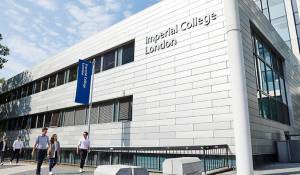'The Economist' has published its 2011 MBA ranking. In its ninth annual report, Dartmouth and Chicago have swapped 1st and 2nd place, and the top 15 schools are almost unchanged. The largest climbers in the top 15, listed at http://www.economist.com/node/21532270 , are the University of Virginia (up seven places) and London Business School (up six places).
The Economist's ranking places a great emphasis on salary and, in particular, on the increase in salary. That benefits schools that recruit younger students and penalises those who recruiter more senior candidate, who might be able to experience less of a pay rise. Generally, it means it's a good fit for the many, if not most, candidates who are focussed on short-term outcomes after the programme.
According to The Economist's conversion of the fees into US dollars, some of the top 30 schools have tuition fees well below average, which is around $100K. Bath (#21, up from 29th) is $34K, Cranfield (#23, down from 15th) is $49K, Hult (#29, down from 27th) is $56K and IMD (#3, up from 6th) is $58.
The full ranking is at http://www.economist.com/whichmba/full-time-mba-ranking
PS The figure given for IMD is both wrong, and misleading. IMD's tuition is 60,000 Swiss francs (around $67,000). However there's a compulsory 25,000 franc fee for other items (food, materials, books, transport etc -- basically the things where IMD wants to claim back sales tax), which brings the total to around $95,000),
'The Economist' MBA ranking: UVA & LBS rise sharply
Posted Oct 14, 2011 19:56
The Economist's ranking places a great emphasis on salary and, in particular, on the increase in salary. That benefits schools that recruit younger students and penalises those who recruiter more senior candidate, who might be able to experience less of a pay rise. Generally, it means it's a good fit for the many, if not most, candidates who are focussed on short-term outcomes after the programme.
According to The Economist's conversion of the fees into US dollars, some of the top 30 schools have tuition fees well below average, which is around $100K. Bath (#21, up from 29th) is $34K, Cranfield (#23, down from 15th) is $49K, Hult (#29, down from 27th) is $56K and IMD (#3, up from 6th) is $58.
The full ranking is at http://www.economist.com/whichmba/full-time-mba-ranking
PS The figure given for IMD is both wrong, and misleading. IMD's tuition is 60,000 Swiss francs (around $67,000). However there's a compulsory 25,000 franc fee for other items (food, materials, books, transport etc -- basically the things where IMD wants to claim back sales tax), which brings the total to around $95,000),
Posted Oct 14, 2011 21:35
IMD (#3, up from 6th) is $58.
well IMD is 85000 CHF which is around 100000$
RSM and SDA pay a lot.... 66 and 67, Oxford after Mannheim,
Lyon and Edhec; Insead and IE beetwen 19 and 24.
This ranking sounds a little crazy
well IMD is 85000 CHF which is around 100000$
RSM and SDA pay a lot.... 66 and 67, Oxford after Mannheim,
Lyon and Edhec; Insead and IE beetwen 19 and 24.
This ranking sounds a little crazy
Posted Oct 15, 2011 00:59
Interesting... Manchester, Imperial, Bradford are not in the top 100!
Posted Oct 15, 2011 01:53
Hi George. Yes, The Economist's greater emphasis on salary, percentage in employment and salary increase favour schools like Bath, Ashridge and Henley which are weak on many of the educational factors that the FT focusses on.
And that's bad news for Schools like Manchester and Imperial whose students are not getting salaries as high as schools which are similarly ranked in the FT ranking. Manchester, for example, is ranked 4th in the UK by the FT, but by employment it is 11th - well below Birmingham, Leeds and Durham. Similarly Oxford, which is 3rd in the UK according to the FT actually has the lowest percentage of graduates in employment of any of the 15 FT-ranked programmes in the UK.
But The Economist spotlights schools like Aston, Glasgow, Newcastle, Nottingham, Southampton and Sheffield which are getting relatively good placement for students.
And that's bad news for Schools like Manchester and Imperial whose students are not getting salaries as high as schools which are similarly ranked in the FT ranking. Manchester, for example, is ranked 4th in the UK by the FT, but by employment it is 11th - well below Birmingham, Leeds and Durham. Similarly Oxford, which is 3rd in the UK according to the FT actually has the lowest percentage of graduates in employment of any of the 15 FT-ranked programmes in the UK.
But The Economist spotlights schools like Aston, Glasgow, Newcastle, Nottingham, Southampton and Sheffield which are getting relatively good placement for students.
Posted Oct 15, 2011 14:13
So Vlerick perform better than Manchest for placement/Salary/ecc ?
Something looks strange here: lots of students (well actully I heard only indians doing so) complain with their placement but they perform well in each rankings...
St. Gallen out, Whu out ... only 1 german school.
Never heard about Bath,,, they are also very cheap.
Something looks strange here: lots of students (well actully I heard only indians doing so) complain with their placement but they perform well in each rankings...
St. Gallen out, Whu out ... only 1 german school.
Never heard about Bath,,, they are also very cheap.
Posted Oct 15, 2011 20:23
Hi George. Yes, The Economist's greater emphasis on salary, percentage in employment and salary increase favour schools like Bath, Ashridge and Henley which are weak on many of the educational factors that the FT focusses on.
Correct, and in my opinion, the Economist's methodology provides a more accurate estimation of the quality of the school.
Even though salary increase is a factor - it's only about a fifth of the overall data used in the rankings. Other, more heavily rated factors include career development, networking opportunities, and the openness of the school to fostering new career paths. All of which are important in a ranking.
Correct, and in my opinion, the Economist's methodology provides a more accurate estimation of the quality of the school.
Even though salary increase is a factor - it's only about a fifth of the overall data used in the rankings. Other, more heavily rated factors include career development, networking opportunities, and the openness of the school to fostering new career paths. All of which are important in a ranking.
Posted Oct 15, 2011 20:57
Can someone help me to understand this?
http://www.economist.com/node/21532117
Tiasnimbas:
Rank (1 to 100)
Open new career opportunities 98
Diversity of recruiters 63
Number of jobs three months after graduation 55
Jobs found through the careers service 89
Student assessment of career service >100
Personal development and educational experience >100
Faculty quality 84
Student quality 91
Student diversity 74
Education experience >100
Increase in salary 13
Percentage increase in salary 19
Post-MBA salary 17
Potential to network >100
Breadth of alumni network 42
Internationalism of alumni 87
Alumni effectiveness >100
So this school is actually the last in educational experience, potential to network, alumni effectuveness, open new career, student's feeling on placement service and .... 13 for salary increase, 17 for post-mba salary,55 for job within 3 months (85 placed) ???????
http://www.economist.com/node/21532117
Tiasnimbas:
Rank (1 to 100)
Open new career opportunities 98
Diversity of recruiters 63
Number of jobs three months after graduation 55
Jobs found through the careers service 89
Student assessment of career service >100
Personal development and educational experience >100
Faculty quality 84
Student quality 91
Student diversity 74
Education experience >100
Increase in salary 13
Percentage increase in salary 19
Post-MBA salary 17
Potential to network >100
Breadth of alumni network 42
Internationalism of alumni 87
Alumni effectiveness >100
So this school is actually the last in educational experience, potential to network, alumni effectuveness, open new career, student's feeling on placement service and .... 13 for salary increase, 17 for post-mba salary,55 for job within 3 months (85 placed) ???????
Posted Oct 15, 2011 21:00
http://www.economist.com/node/21532093
Lyon
1 for Number of jobs three months after graduation
10 Jobs found through the careers service
....
85 Student assessment of career service
Lyon
1 for Number of jobs three months after graduation
10 Jobs found through the careers service
....
85 Student assessment of career service
Posted Oct 15, 2011 21:10
Insead
http://www.economist.com/node/21532062
Rank
Percentage increase in salary >100
Breadth of alumni network >100
and is this considered one of the number one in Europe?
HEC
http://www.economist.com/node/21532049
very strong for salary
http://www.economist.com/node/21532062
Rank
Percentage increase in salary >100
Breadth of alumni network >100
and is this considered one of the number one in Europe?
HEC
http://www.economist.com/node/21532049
very strong for salary
Posted Oct 15, 2011 21:19
http://www.economist.com/node/21532053
Henley rated 57
Open new career opportunities >100
Diversity of recruiters 98
Number of jobs three months after graduation >100
Jobs found through the careers service n/a
Student assessment of career service >100
---------
Percentage of graduates in jobs 3 months after graduation 50
Henley rated 57
Open new career opportunities >100
Diversity of recruiters 98
Number of jobs three months after graduation >100
Jobs found through the careers service n/a
Student assessment of career service >100
---------
Percentage of graduates in jobs 3 months after graduation 50
Posted Oct 16, 2011 11:10
Hi Mauro,
I think there are a few possible explainations for the results you're surprised by.
- First, I am not surprised that there are schools with high employment rates but where the careers services is rates lowly. Generally, careers services are the Achille's Heel of most business schools: students have high expectations and the 'milk round' approach of top-tier undergraduate hiring in the national market which most MBA careers advisors has as their background, is not easily transferrable. MBAs find work often through off-campus leads and networking, and the careers services often don't support that. At INSEAD, for example, where one firm has recruited almost half the students for years, I am not surprised to see that it has a weak careers set-up for people looking at independent options.
- With schools that recruit older students, like Henley specifically and one year programmes in general, then students are less likely to be hired through traditional campus activities, change into new careers, or rapidly find jobs. In that respect, schools that offer internships have a distinct advantage.
- I don't know about the sample sizes, but for some schools the data will be less reliable.
I think there are a few possible explainations for the results you're surprised by.
- First, I am not surprised that there are schools with high employment rates but where the careers services is rates lowly. Generally, careers services are the Achille's Heel of most business schools: students have high expectations and the 'milk round' approach of top-tier undergraduate hiring in the national market which most MBA careers advisors has as their background, is not easily transferrable. MBAs find work often through off-campus leads and networking, and the careers services often don't support that. At INSEAD, for example, where one firm has recruited almost half the students for years, I am not surprised to see that it has a weak careers set-up for people looking at independent options.
- With schools that recruit older students, like Henley specifically and one year programmes in general, then students are less likely to be hired through traditional campus activities, change into new careers, or rapidly find jobs. In that respect, schools that offer internships have a distinct advantage.
- I don't know about the sample sizes, but for some schools the data will be less reliable.
Posted Oct 16, 2011 14:29
http://www.economist.com/whichmba/methodology
Here,it' is explained why Manchester and Imperial are not ranked: "Falied to respond/Declined to take part".
Why they decided to do so is unknown :-)
Here,it' is explained why Manchester and Imperial are not ranked: "Falied to respond/Declined to take part".
Why they decided to do so is unknown :-)
Posted Oct 17, 2011 13:17
Checking the different mba I went through Warwick
http://www.economist.com/node/21532228
avg GMAT: 610
Percentage of graduates in jobs 3 months after graduation 96%
Percentage of graduates finding jobs through careers services 93%
Post-MBA salary ($)65,558 (on the FT it's 110000$...)
http://www.economist.com/node/21532228
avg GMAT: 610
Percentage of graduates in jobs 3 months after graduation 96%
Percentage of graduates finding jobs through careers services 93%
Post-MBA salary ($)65,558 (on the FT it's 110000$...)
Posted Oct 17, 2011 16:58
Mauro, I think the FT's survey is of graduates three years after graduating. Also the FT uses PPP, which could inflate schools recruiting a lot of students from the developing world.
Posted Oct 29, 2011 00:41
Duncan brings up a good point. PPP (purchase power parity) supposedly levels the playing field between grads from western schools and those in the developing world. Ranking systems do this by converting post-graduation salaries from the developing world into values that can compare with grads in the west.
But does this make sense? What's interesting is that the FT does not use PPP to scale tuition in the same way - which makes comparing returns on investment hard if you're considering schools in different parts of the world.
Are there other ways to compare such different schools? These huge salaries look good on paper, but is it really fair to compare them like that?
Mauro, I think the FT's survey is of graduates three years after graduating. Also the FT uses PPP, which could inflate schools recruiting a lot of students from the developing world.
But does this make sense? What's interesting is that the FT does not use PPP to scale tuition in the same way - which makes comparing returns on investment hard if you're considering schools in different parts of the world.
Are there other ways to compare such different schools? These huge salaries look good on paper, but is it really fair to compare them like that?
<blockquote>Mauro, I think the FT's survey is of graduates three years after graduating. Also the FT uses PPP, which could inflate schools recruiting a lot of students from the developing world.</blockquote>
Related Business Schools
Other Related Content
Warwick Launches New Hybrid Accelerator MBA For March 2024 Intake
News Dec 01, 2023
Rankings: What They Can and Can't Tell You About a Business School
Article Aug 15, 2010
MBA rankings aren't everything, but they can be a useful tool if you know what they measure and what their limitations are
Hot Discussions
-
Oxford executive diplomas
Apr 01, 2024 246 9 -
How to evaluate IIFT's Executive PGDM
Apr 03, 2024 137 5 -
Do MBAs carry more weight in the US than Europe?
Mar 21, 2024 248 4 -
Healthcare and finance
Mar 27, 2024 178 3 -
Mannheim vs WHU
Apr 09, 2024 157 3 -
MBA at Imperial vs Bayes vs Warwick for international student
Mar 25, 2024 180 1 -
Two MBAs for the price of one
Apr 12 03:20 PM 138 1 -
Saint Gallen vs Mannheim MBA
Mar 22, 2024 88 0





